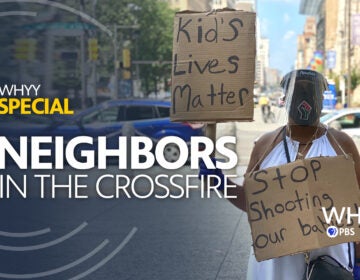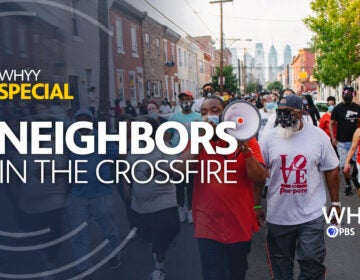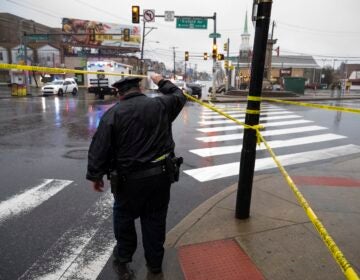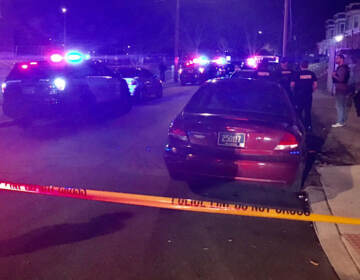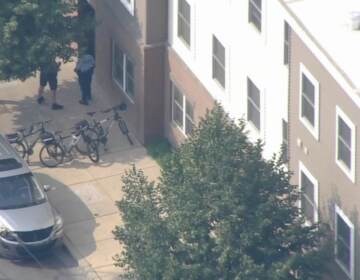Rooting out Philly’s gun violence epidemic
Gun violence is tearing families and communities apart, but many Philadelphians are also stepping forward with ideas for how to root out the epidemic.
Listen 16:50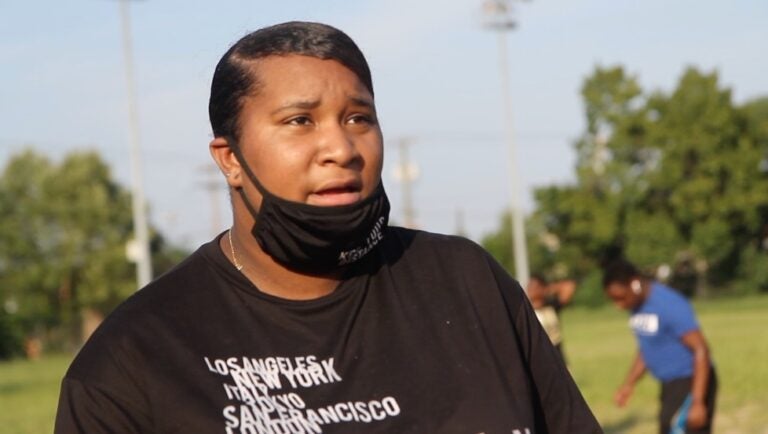
Sakirah Augustus, a teenager involved with the anti-gun violence organization YEAH Philly, says it's important for adults to check in with kids and listen to what they have to say. (Kimberly Paynter/WHYY)
With nearly three months left to go, more people have been murdered in Philadelphia this year than in all of 2019 and at least 1,655 people have been shot — levels of violence the city hasn’t seen since 2007.
It’s tearing families and communities apart — but many Philadelphians are also stepping forward with ideas for how to root out the epidemic.
WHYY’s Community Contributors and Engagement Editor Chris Norris shares his takeaways from “Neighbors in the Crossfire,” his recent three-part TV series that explores the causes and possible solutions to the city’s gun violence crisis.

Hear the whole story on The Why
Interview highlights
On what residents in affected neighborhoods say is causing so many shootings
It’s the prevalence of illegal guns. It’s the lack of jobs and opportunities in neighborhoods. It’s education. It’s poverty. The leading cause of death for Black men in Philadelphia is homicides, particularly between the ages of 15 to 30. And most likely, those victims and those perpetrators are from poor neighborhoods. That has never changed. And that will remain the same until you actually start to disrupt the root causes of violence, which are the economic segregation, which are hopelessness and mental illness, which are the illegal guns. And it doesn’t matter if you’re tough on crime or if you’re more sympathetic to the injustice of the criminal justice system. If you don’t actually tackle those things, including street culture and how appealing street culture can be to those who are economically insecure, who want status, who want money to take care of their family … We’re talking about needs here. If the basic needs of a society aren’t met, they will turn to crime. It’s not rocket science.
On one anti-violence advocate’s idea for saving lives
Anton Moore is a young man from Tasker projects who’s grown up to be quite the dynamic community leader. But he’s the guy where there’s a beef going down in Wilson projects or there’s something about to pop off at 23rd and Snyder, Anton gets the call first. And he can go into those neighborhoods and have the respect of those young men because he gets them jobs. He gets them opportunities. And, you know, it’s funny, Anton and I talk probably three or four times a week about gun violence. And yet, I had never heard him bring up this idea about relocating those who may be in danger of falling victim to gun violence. And to my surprise, most recently, Philadelphia Police Commissioner Danielle Outlaw also talked about the need to potentially relocate some of these people.
On what an effective strategy from the city could look like
I guess it would look like going all hands on deck. It would look like the City Council, the DA’s office, the police department, the Department of Parks and Recreation all coordinating, all meeting, often all sharing resources, best practices, going out and connecting with those on the ground and making sure there is a system and a strategy in place. And they are accountable to that strategy and they’re regularly communicating with the public, that they’re being transparent about what they’re funding and what they’re not funding. It looks like the opposite of what’s happening today.
WHYY is your source for fact-based, in-depth journalism and information. As a nonprofit organization, we rely on financial support from readers like you. Please give today.



